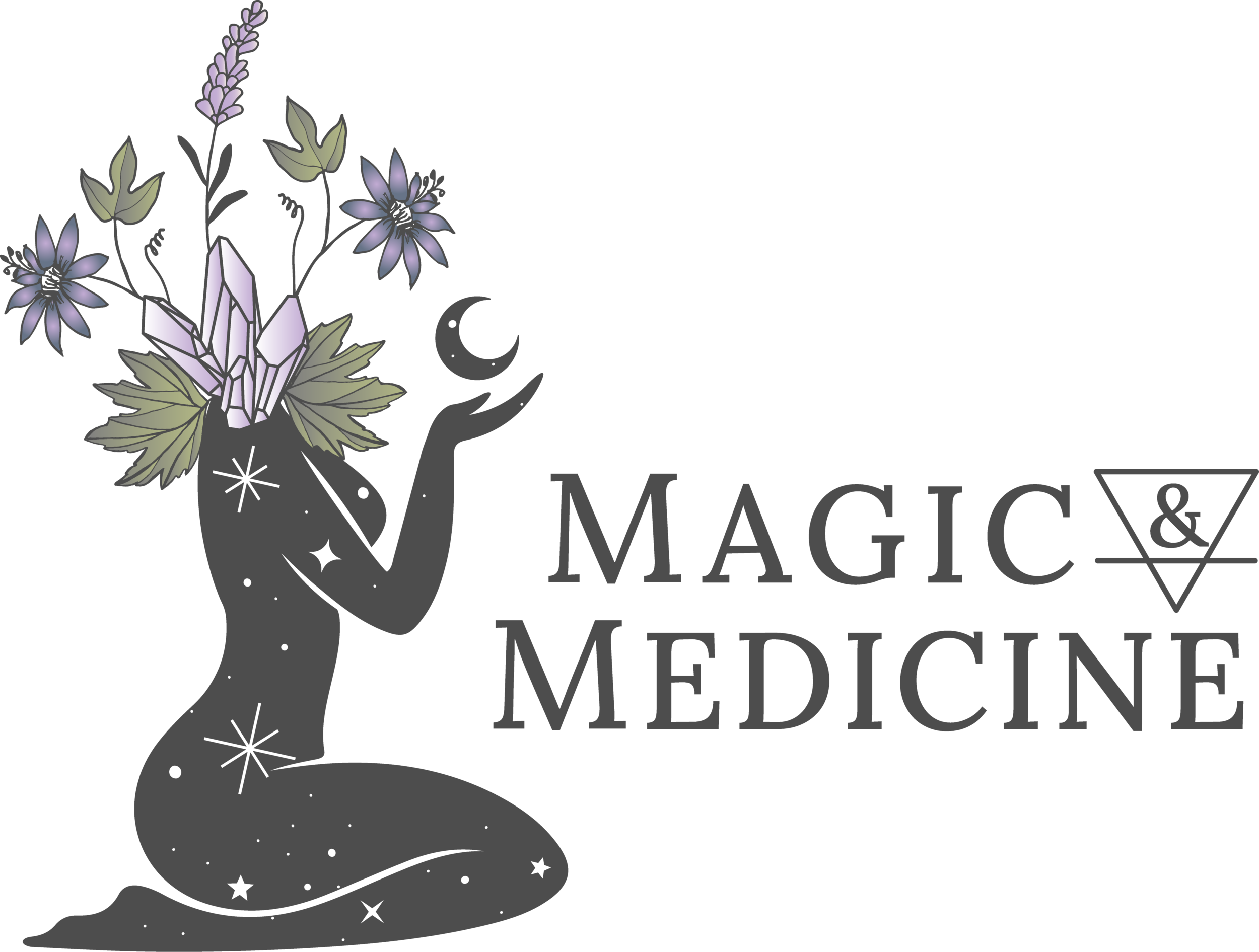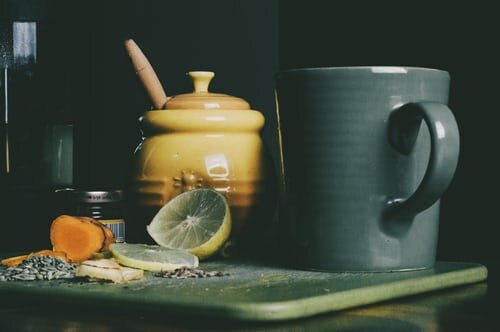Quick and easy kitchen tips for supporting the immune system
Cold and flu season is upon us, as we enter into winter here in New Zealand. Now is a good time to focus on how we can support our immune function through some common kitchen ingredients, after all food was our first medicine! As always before adding new foods into your diet check that they are compatible with your own health issues, any medications you may be taking or any allergies you may have.
Culinary herbs like, Oregano, Thyme, Sage and Rosemary in addition to being great flavourings to meals, can also make wonderful teas that help boost the immune system as they are all antioxidant rich, anti inflammatory and have either antiviral or anti bacterial properties (some have both). Thyme and Oregano are wonderful infusions to drink when you are experiencing symptoms such as a sore throat. Because these herbs taste delicious when added to food, it is easy to start upping our intake by adding them into our meals. All of the above mention herbs are easy to grow in the home garden or in pots, so you can always have them on hand and are easy to hang in bunches to dry and store. They all can make good herbal steams for opening up the airways, easing congestion and helping you to rid yourself of excess mucous.
To make a steam Bring 4-6 cups of water to a boil. Add to a large bowl, along with herbs such as Thyme, Rosemary or Sage (Eucalyptus leaves are also great), cover the bowl with a lid or plate to trap in all the essential oils from the leaves and let it steep for 5-10 minutes. Take the plate off the top of the bowl and cover your head with a towel and position your face over the bowl, using the towel as a tent to hold the steam in. Keeping your eyes closed (to protect from steam) and face 5-10 inches away from the hot water, breathe deeply for no more than 10 minutes at a time. NOTE: Please take care to not burn your face from the steam, and take care when handling hot, boiling water.
Other foods that you may wish to consider increasing in your diet due to their anti inflammatory, anti oxidant rich properties which will help to support the immune system are; Turmeric, Black currents, Onions, Welsh Onions, Horse Radish, Ginger and Garlic.
Garlic is wonderful as a lot of people enjoy its taste and you can add it to dishes, raw, cooked or roasted. Be sure to crush your garlic as it releases more allicin (a potent antioxidant) than using the cloves whole. One way to use your garlic is by making your own jar of garlic honey. Simply take a jar of honey and add 5-10 fresh, crushed cloves of garlic, put the lid back on and let it sit for 3 days before use. Garlic honey is great as both the honey and garlic have anti bacterial and anti microbial properties. The combination of garlic and honey is thought too slow or stop the growth of bacteria that cause illness and infections.
You can take this garlic honey at 1/2 tsp daily when you feel unwell with a sore throat, cold or upper respiratory infection, etc (always take on a full stomach as it can make you feel nauseated) or you could use the garlic honey in homemade salad dressings or even as a pizza topping! You could also make a hot lemon drink (use the juice of one lemon, squeezed into hot water) and then add the garlic honey to sweeten and boost the drinks healthful properties.
Ginger is another star kitchen ingredient. Fresh is best, and you can always keep ginger on hand by storing a knob in the freezer (this makes it easier to grate too!). Ginger, with its warming, spicy flavour is a great anti inflammatory, it warms the lungs, helps to stop coughs and also helps with nausea and digestive issues. You can use ginger in your cooking and it makes a wonderful tea.
Lemon Balm, is an easy to grow herb, perfect for pots or a spot in the garden. It self seeds readily, is low maintenance, smells amazing and the bees love it too. Fresh handfuls of Lemon Balm can be added to a pot of hot water to make a herbal infusion that is calming to the nervous system (so great for irritability or anxiety in children and adults alike), helps calm the digestive upsets, good for reducing symptoms of cold, flu and fever; and on top of all of this has anti viral properties. Tip: chew leaves of Lemon Balm lightly then place these leaves on top of any cold sores, for five or so minutes, repeat 3-4 times a day and watch those cold sores reduce and disappear!
Nasturtiums are another easy to grow plant, that will creep through your garden and give you cheerful brightly coloured flowers. You can then eat the peppery tasting flowers (lovely stuffed with feta or goats cheese) and leaves in salad, sandwiches, or how ever you fancy. Nasturtium is high in Vitamin C, has antibacterial properties and is a good tonic.
If you find yourself suffering from upper respiratory tract issues, and are feeling quite congested and full of mucous, you might like to try a warm drink of lemon juice, honey (to sweeten) and a dash of cayenne. Lots of people have found this tea helpful to support the immune system and to help draw the mucous out.
You can also help support your immune system by:
* Drink lots of fluids, warm fluids are especially helpful to break up mucous
Getting lots of quality sleep.
Increasing whole foods in your diet
Reducing the amount of sugar in your diet (sugar increases inflammation in the body and research suggest it also dampens the immune system)
Reducing stress levels and honouring emotions in a safe, productive way, rather than bottling them up.
Regular exercise and movement
If you wish to receive a more personalised plan on how to best support your immune system, or your health and wellbeing, please get in touch to organise a Naturopathic consult. Please note due to current restrictions, only online consults are available (at a reduced rate). Take care and be well.
Nasturtiums have a lovely peppery taste and are high in Vitamin C


